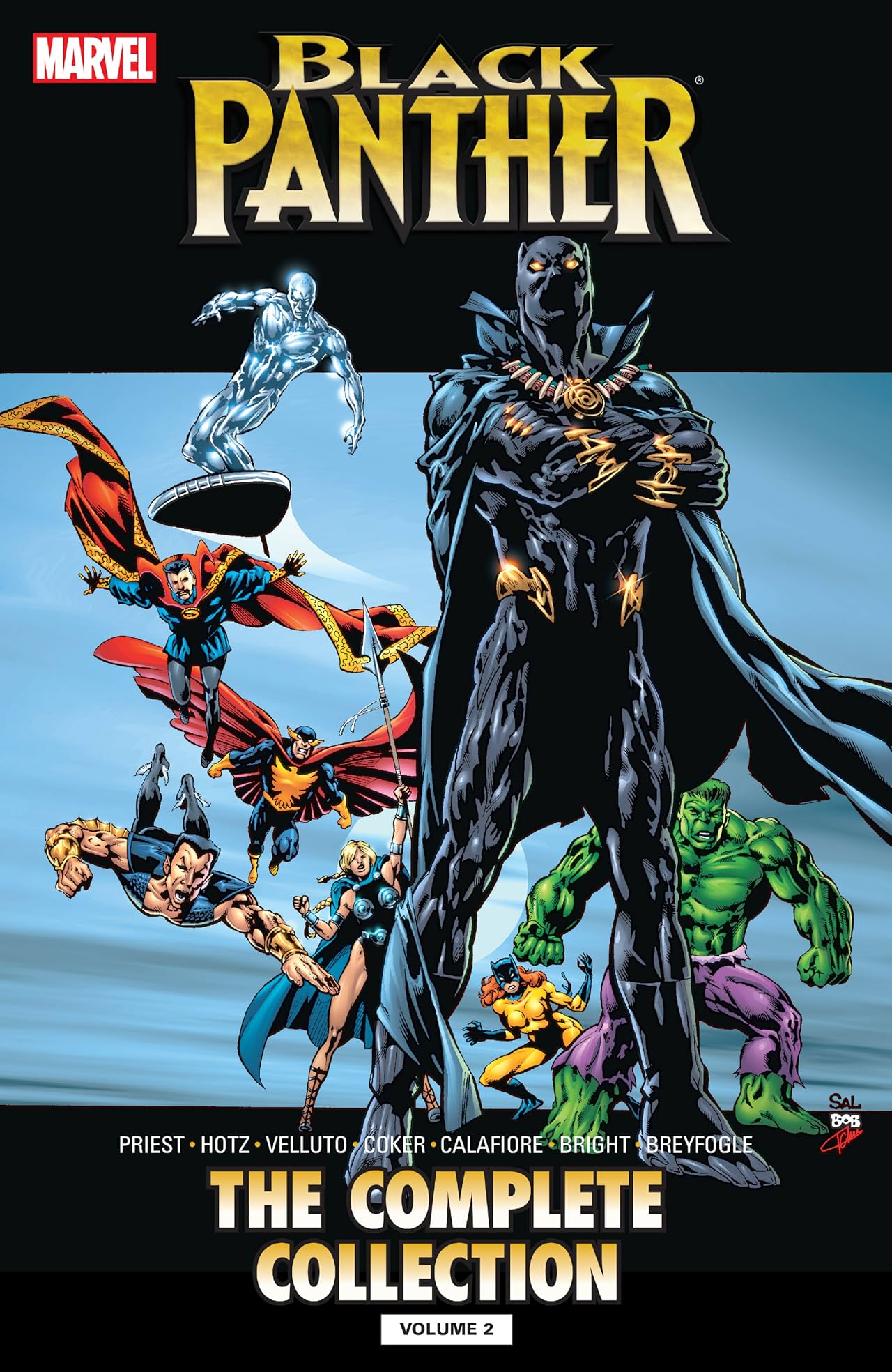by Christopher Priest, Kyle Hotz, Sal Velluto and more
Collects Black Panther (1998) #'s 18-35, Deadpool (1997) # 44
Priest continues his storied take on the Black Panther as superhero political satire. To kick off this volume, Erik Killmonger, revived by the Resurrection Altar of Wakanda and by his own hatred of King T'Challa, makes a ploy to crash the Wakandan economy! Three steps ahead of his opponent, T'Challa crashes it himself, dissolves the Wakandan parliament, nationalizes all foreign interests, and crashes the global economy in response.
Add to that another tribal challenge by Killmonger, which King T'Challa never wins, and you have an amusing take for a couple issues where Killmonger, as the Black Panther, joins the Avengers. His whole life he had looked up to these people, but by the time he's Black Panther and sees them as equals, he has nothing but distaste for him. Pretty amusing:
There's so many storylines packed in this collection. My biggest qualm with it is the lack of emotional core -- and maybe that's a feature of the story. The characterization of T'Challa is that he's a good person...so good that he's willing to start World War III to protect an innocent child, as the second storyarc after the Killmonger arc. Black Panther as a character doesn't seem so personal, and as far as the comic is telling us, that may just be because he's not allowed to be a person -- he has to be a king. A king is beyond such things. This tension erupts in the next storyarc, when Malice, a former member of the Dora Milaje who turned her love for the king into a deadly obsession, begins to enact revenge on all the people that T'Challa's loved before. T'Challa has to keep the peace not just with her in the states, but at home in Wakanda with the tribe that she represents.
Finally, the Man-Ape returns in the two-part "Gorilla Warfare," unleashing another secret of the newest member of the Dora Milaje. Queen Divine Justice, the Chicago-born Wakandan learns that she is the last line of royalty of the condemned Jabari tribe, worshippers of the White Gorilla.
The major theme of this title is what it means to be a king and to be a man, but the main character handles them with panache. Unfortunately it's this same trait that keeps the character from taking off. More often than not, he is this faceless entity always planning and plotting for the sake of a disparate, diasporic nation. Certainly not your standard super-comic, and while the character is the hook, he's not the main draw, and it's the situations and plots that are at the heart of the title.




No comments:
Post a Comment